Why Is My Cat Meowing So Much? Understanding Feline Vocalization
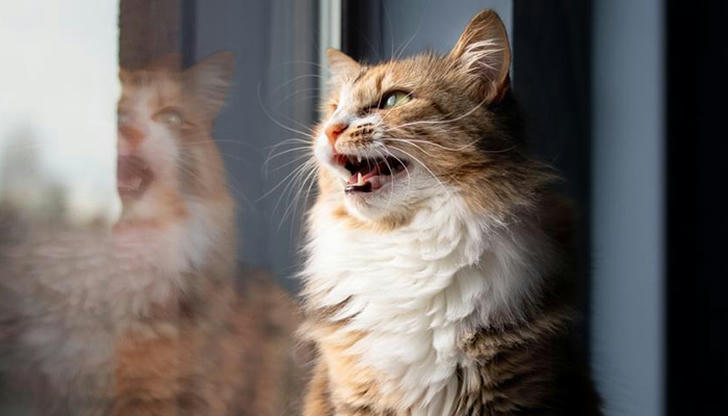
It's 3 a.m., and your cat is pacing the hallway --- meowing nonstop. You've checked the food bowl, the litter box, even the windows, but nothing seems wrong. So why does your cat keep talking?
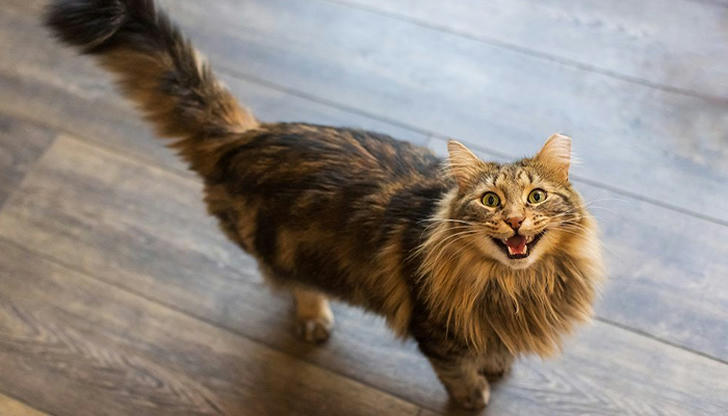
If this sounds familiar, you're not alone. Cats meow for many reasons --- to get attention, express hunger, or simply because they've learned that meowing makes you respond. While an occasional "meow" is completely normal, excessive vocalization can signal an unmet need, a behavioral habit, or even a health issue.
Understanding why your cat is meowing so much is the first step toward helping them --- and getting some peace and quiet for yourself. Let's decode what your cat is really trying to say.
1. What Does Meowing Actually Mean?
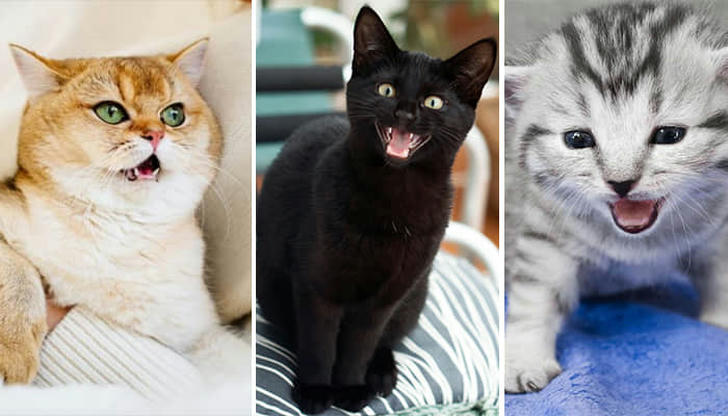
Cats are natural communicators --- but interestingly, adult cats rarely meow to each other. They mostly reserve this sound for humans. Over time, your cat learns that different tones and lengths of meows can trigger specific responses from you.
Think of it as your cat's personalized "language." Some meows mean "feed me," others mean "I'm lonely," and some are pure protest. Here's what a few common types might indicate:
Short, soft meow: A friendly greeting or request.
Long, drawn-out meow: A complaint or strong demand ("I said dinner time was five minutes ago!").
Repeated, mid-pitch meows: Persistent asking for something --- attention, food, or play.
Loud yowls or trills: Signs of discomfort, mating behavior, or anxiety.
Each cat develops their own vocal "accent," and part of being a pet parent is learning to interpret it. The key is to notice when the pattern changes --- more frequent, louder, or unusual sounds can point to stress, boredom, or pain.
2. Common Reasons Your Cat Is Meowing So Much
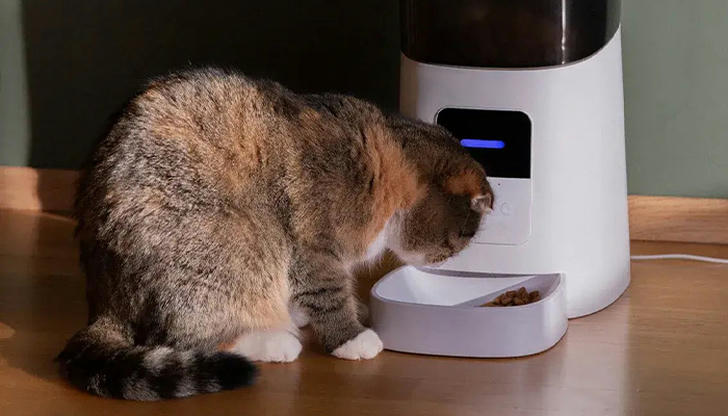
Now that we know meowing is communication, let's explore what your cat might be trying to tell you.
2.1. Hunger or Feeding Schedule
Cats are excellent timekeepers. If dinner is even ten minutes late, they'll remind you --- loudly.
Frequent meowing around feeding times usually means your cat has learned that noise equals food.
Solution: Stick to a consistent feeding schedule or use an automatic feeder. Avoid giving in to every meow, or you'll reinforce the begging behavior.
2.2. Seeking Attention or Affection
Sometimes, your cat just wants to connect. They may meow when you're working, talking on the phone, or watching TV --- anything that doesn't involve them.
This is common in affectionate or social breeds like Siamese cats.
Solution: Schedule short play or cuddle sessions throughout the day. Interactive toys and window perches can also keep them occupied.
Tip: Only reward calm behavior with attention --- not persistent meowing.
2.3. Stress, Anxiety, or Environmental Changes
Cats thrive on stability. A new home, new pet, or even rearranged furniture can cause anxiety and trigger vocalization.
Stress meows often sound lower-pitched and more drawn out.
Solution: Create safe zones with familiar blankets, diffusers, or hideouts. Keep daily routines predictable and avoid sudden disruptions.
2.4. Medical or Age-Related Issues
If your cat suddenly starts meowing more --- especially at night --- it may be due to an underlying medical issue.
Common causes include hyperthyroidism, high blood pressure, cognitive decline (in senior cats), or pain from arthritis or dental problems.
Solution: Schedule a vet visit to rule out physical causes. Sudden or distressing vocal changes should never be ignored.
2.5. Mating Behavior or Hormonal Changes
Unspayed or unneutered cats can become extremely vocal during mating seasons. Females yowl to attract males, while males respond loudly in return.
Solution: Spaying or neutering usually reduces this type of meowing dramatically and improves overall behavior.
2.6. Boredom or Lack of Stimulation
Indoor cats often meow out of boredom or pent-up energy --- especially if left alone for long hours.
They may be asking for mental stimulation or playtime.
Solution: Offer puzzle feeders, rotating toys, climbing trees, or daily interactive play to keep their minds engaged.
3. When to Worry: Signs It's More Than "Just Meowing"
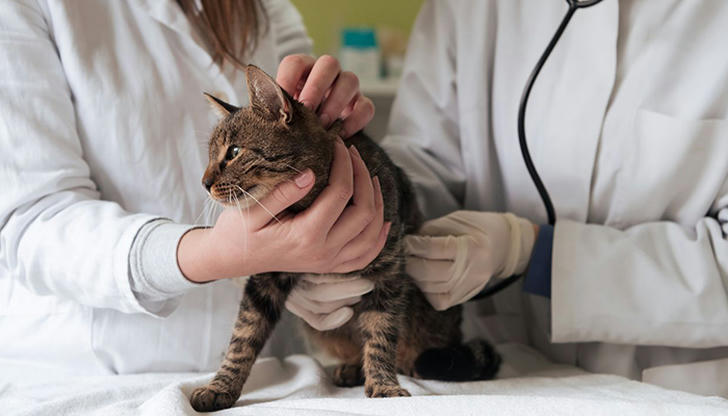
Most meowing is harmless --- but a sudden change in tone or frequency can signal something more serious.
Pay attention if your cat:
Meows constantly at night or sounds distressed.
Shows changes in appetite, litter box habits, or sleep.
Cries while eating or using the litter box.
These may point to medical issues like hyperthyroidism, dental pain, or anxiety.
If your cat's meowing feels "off," it's safest to get a vet check. Cats rarely vocalize without a reason.
4. How to Respond Without Making It Worse
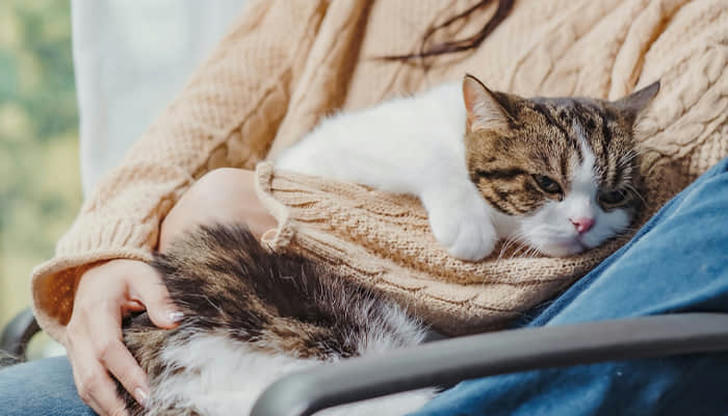
How you react matters. The wrong response can make meowing stronger.
Don't yell or punish. It only causes fear and confusion.
Stay consistent. Ignoring sometimes and responding other times sends mixed signals.
Reward silence. Wait for a few calm moments, then give attention or a treat.
Keep routines steady. Predictable feeding and play reduce stress-driven meows.
A calm home and clear pattern help your cat feel secure --- and quieter.
5. Helping Quiet Cats Communicate in Healthier Ways

You can teach your cat better ways to "talk."
Interactive play: Short daily sessions burn off energy and reduce frustration.
Environmental enrichment: Cat trees, puzzle feeders, and window views keep them occupied.
Gentle responses: Speak softly or use clicker cues to acknowledge them.
Trust and patience: The more confident your cat feels, the less they'll need to shout for attention.
6. Final Thoughts: Listening Behind the Meow
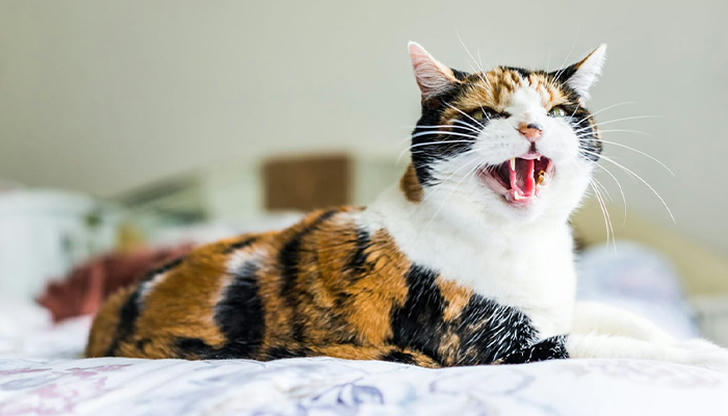
Every meow carries meaning --- hunger, curiosity, comfort, or stress.
The goal isn't to silence your cat but to understand what they're saying.
Once you start listening, you'll notice patterns, build trust, and turn endless meows into real communication.
